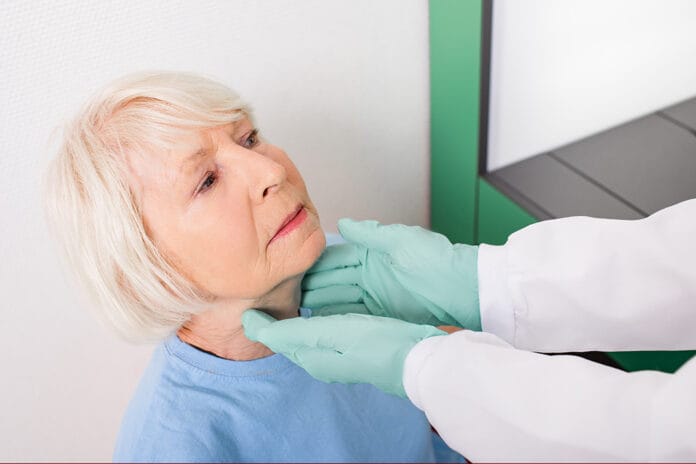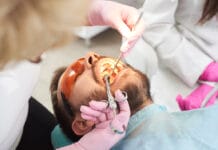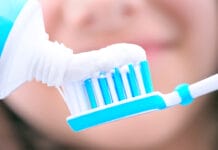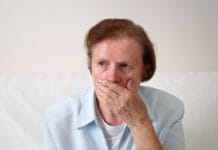Lecturers at dental conferences often share stories about the times they were able to save a patient’s life by performing a head and neck cancer screening. I have a couple of those stories myself. But the story I tell my conference attendees and my clients is not a hero story about the time I was successful at early detection.
I tell the story of the cancer that I missed.
I consider this story a “God moment” in my life’s story. People typically reserve that phrase for especially miraculous or joyous experiences. For me, it was a devastating, confidence-shattering, life-reevaluating moment. That moment when I learned that I had missed my patient’s cancer − when I realized I could have found it if I had done my due diligence as a clinician − was the lowest moment in my career and possibly in my life up to that point.
Took a Shortcut
I was a new hygienist out of school for only a few years. Just as my dental hygiene school instructors taught me, I did every procedure the same way every time. I performed a periodontal screening starting on the upper right posterior tooth every time. I started my bitewing x-rays with the right molar view every time. I performed a thorough extraoral and intraoral head and neck cancer screening for every patient at every appointment, and I did it the same way every time.
Did I mention I’m an obsessive-compulsive perfectionist? So, when I decided, because I was running way behind schedule one day, I would skip the extraoral exam on my patient, it was absolutely out of character for me. It was the first and only time I’d ever made that decision. And if the consequences hadn’t been so dire, I probably wouldn’t have thought about it again.
But the consequences were very dire. The patient (I’ll call him Kevin) had a lump on the left side of his neck. Of course, since I didn’t examine his neck, I didn’t know that. When he returned six months after that fateful day when I was running behind, he told me he had been diagnosed and treated for non-Hodgkin’s Lymphoma.
Kevin told me that he had noticed the lump a few weeks before he had seen me last. His wife was concerned and begged him to see the physician a few weeks after his appointment with me. The physician quickly found the tumor and referred him for tests that found cancer. He was quickly treated with surgery, chemotherapy, and radiation. The radiation had obliterated his salivary glands and left him with a perpetually dry mouth. He had no ability to taste food anymore, but he was happy and grateful to be alive.
I honestly have no idea how I made it through that appointment. When Kevin began to tell me about his cancer, the fingers of his left hand touched the scar on his neck where the surgery removed the tumor I never found. My knees buckled, and my head started to spin. I vividly recalled in that instant that I had not done his extraoral exam six months before. And I knew, without a doubt in my mind, that had I done that exam, I would have easily felt the tumor.
I had uncharacteristically taken a short cut to get myself back on schedule. And that unprofessional choice resulted in my patient paying a terrible price. Time is of the essence when cancer is involved. I will never know how Kevin’s health might have been affected had I found the tumor that day I saw him six months before. I saw Kevin only weeks before his wife convinced him to see his physician, but maybe in those weeks, had his treatment been started earlier, his salivary function and his taste sensation might have been spared. I’ll never know.
Healing Hands
I just know that the moment Kevin touched the side of his neck and told me about the lump that I never bothered to check six months before changed my practice forever. I was shaken to my core. I questioned if I was even in the right profession. Did I deserve the privilege of treating patients who entrusted their health to my hands?
My high standards of practice were instilled in me by my father. He was a highly regarded dentist, and I grew up admiring the pride he took in caring for his patients. Other dentists sent him their most difficult cases. He never took a short cut, he never skipped a step, he never let his patients down.
When I graduated from dental hygiene school, my father took my hands in his and said, “You have healing hands, just like mine.” Those words made my heart burst with pride, and I felt them as a blessing and a charge. I did my best every day for every patient in hopes of making my father proud.
That is, I did my best every day, except that once. Now I had not only let my patient down, but I had also let my father down, and I had let myself down. I didn’t know who I was anymore if I wasn’t the best practitioner I could be.
I had lost faith in myself, and I didn’t know what to do. How could I go back to work the next day, and every day after that, knowing what I had done? I was too ashamed to tell anyone. But I knew God already knew. So, I turned to Him and asked for help. I wept tears of shame and guilt and regret, and I asked for guidance. I was very young. Should I go back to school? Was there a different path I was supposed to take?
My answer came in an absolute knowing in the depths of my heart that I was not to leave patient care after all. I was to use that one terrible mistake to help other practitioners elevate their own practices and enable more patients to receive regular cancer screenings and early detection. I vowed that I would never again skip any part of the head and neck cancer examination. I wouldn’t ever take a chance with my patient’s health and life.
From that day, I have performed a comprehensive extraoral and intraoral head and neck cancer screening for every patient, regardless of age, at every appointment without fail. And I would dedicate the rest of my career to teaching and motivating my colleagues to do the same.
This is why I call the moment that Kevin touched the side of his neck a “God moment.” It was like a lightning bolt through my soul. My passion was ignited. I became evangelical about saving lives. I speak about the early detection of oral and oropharyngeal cancers to groups of dentists and dental hygienists whenever I have the opportunity.
I have found a few cancerous lesions in the 30 years since that fateful day. But I really don’t talk about that. I share my shame. I share the moment I let my patient down. I share the moment I let myself down. I share so that no one else will ever have to live with that guilt and that pain. I share so that my colleagues will take to heart that we must do a comprehensive head and neck cancer screening for every patient at every appointment, no matter what.
This is a mission for me. It’s a passion and one of the “whys” that define my career. I humbly stand before my colleagues and ask you to make cancer screening non-negotiable for you, too.












